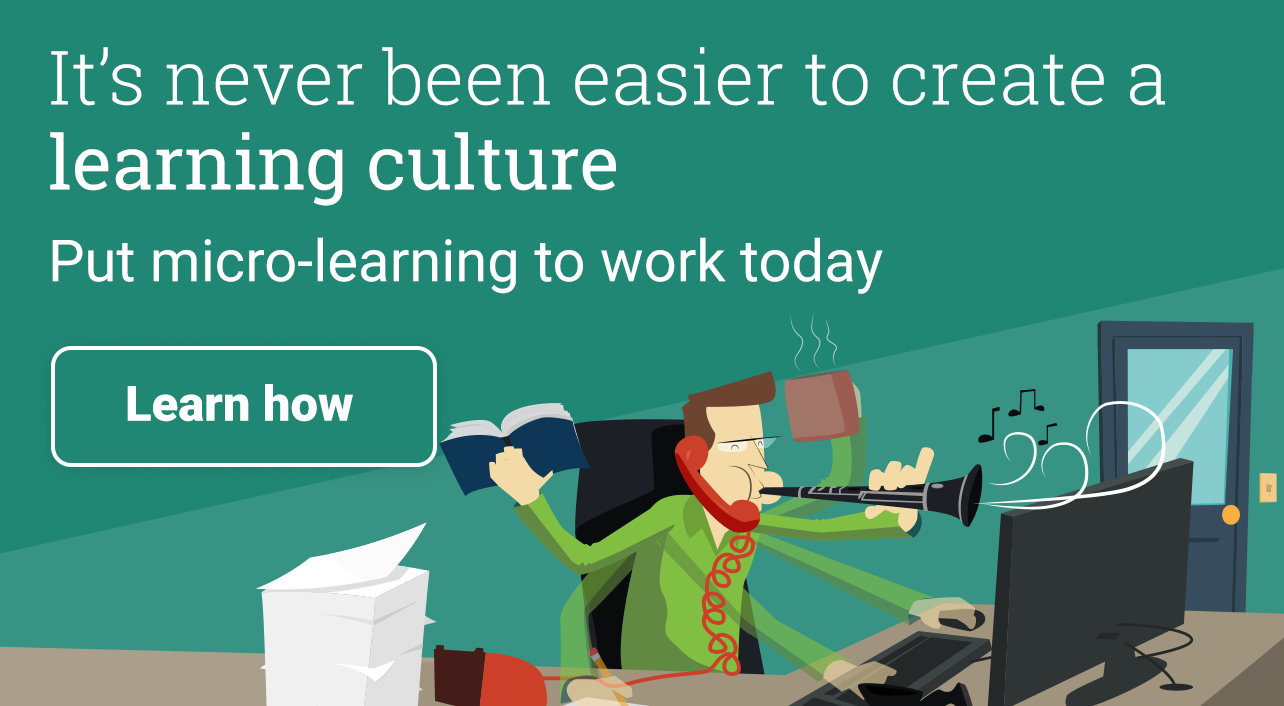- corporate
- Blog post
Video game research reveals successful practice techniques
Playing video games isn’t typically thought of as “practice,” but that’s essentially what it is. As someone plays a game over and over, he or she learns what is successful and improves his or her performance.
And because many popular video games are now played over the internet, researchers have access to oceans of data about how people’s practice habits affect their performance. Video games have become an unlikely source of information about how we learn.
A couple of recent studies on gaming provide some real-world insight into how you can structure a successful practice and reinforcement strategy in your organization.
The research
A research team from Brown University looked at a popular online video game and analyzed all the data over the first seven months of the game’s release – which included more than 3.2 million unique players.
As you might expect, the people who played the game the most ended up showing the most improvement over time. But after analyzing the data, the researchers found that sheer volume wasn’t the most efficient way for players to improve their skills.
They found that people’s playing habits significantly affected their improvement. The players that gained the most skill per game were those that played four to eight games a week, improving faster than those that, for example, played twice as much.
How did playing half as much result in more improvement? The players spaced out their practice sessions.
According to the head researcher, “if you want to improve the most efficiently, it’s not about playing the most matches per week,” or practicing the most. “You actually want to space out your activity a little bit and not play so intensively.”
Another study out of the University of Sheffield that looked at over 850,000 players’ data discovered the same insight – players that naturally spaced out their practice improved more quickly.
Interestingly, they also found that the players whose performances were erratic when first learning the game also improved rapidly. The researchers suggest that this is because people who experiment and test different strategies when first learning a new skill are quick to figure out what works and what doesn’t. And this knowledge helps them to improve at a faster rate.
Recommendations
Space practice out.
The video game research is further support for what is commonly referred to as the spacing effect. When learners space out practice, they reap greater rewards than when they try to compress it all into one or two blocks of time.
Consider harnessing the power of spaced practice by implementing it in your own workplace learning program. Remember that practice should occur regularly after learners acquire a new skill so the skill is reinforced and improvement continues.
Encourage experimenting during practice.
Like in the University of Sheffield study, allow learners to experiment when learning a new skill or technique. The study suggests that this experimentation will help learners identify what works for them and allow them to focus their practice on individual improvement.
For example, if you are teaching your salespeople a new relationship building technique, give them the flexibility to play with the wording and tweak the approach to fit their personality. Practice sessions provide a safe environment where learners can experiment and individuals can discover what specifically works for them.
Recognize when enough is enough.
The studies suggest that the quantity of practice – particularly in one sitting – is not the most important measure of the learning process. So if your learners have been practicing for a while and appear to be hitting the wall, call it day. Give them time to reflect and schedule another practice for a day or two later. It will be a more efficient use of time and the space away will actually help them improve in the long run.
Sources
Huang, J., et al. (2017). Master maker: Understanding gaming skill through practice and habit from gameplay behavior. Topics in Cognitive Science. doi:10.1111/tops.12251
Stafford, T., & Dewar, M. (2014). Tracing the trajectory of skill learning with a very large sample of online game players. Psychological Science, 25(2), 511-518.

Get a demo of all our training features
Connect with an expert for a one-on-one demonstration of how BTS Total Access can help develop your team.





2 Comments
Interested to hear more about Rapid Learning and examples of Micro Learning Content
Great article, Stephen. Gaming is an unorthodoxed but it is actually a good idea for all the right reason you mentioned here. Companies are wary about this. It’s an investment of money and time and employees might dig into it so much that it would result to less productivity. But like most tech companies are doing now – Google, Facebook, etc. – and look how successful they have been. More than gaming being a micro learning content method, but it releases the stress from employers and add enjoyment to their job. All it really needs is a proper control or implementation of rules on when and how long can everyone play video games.